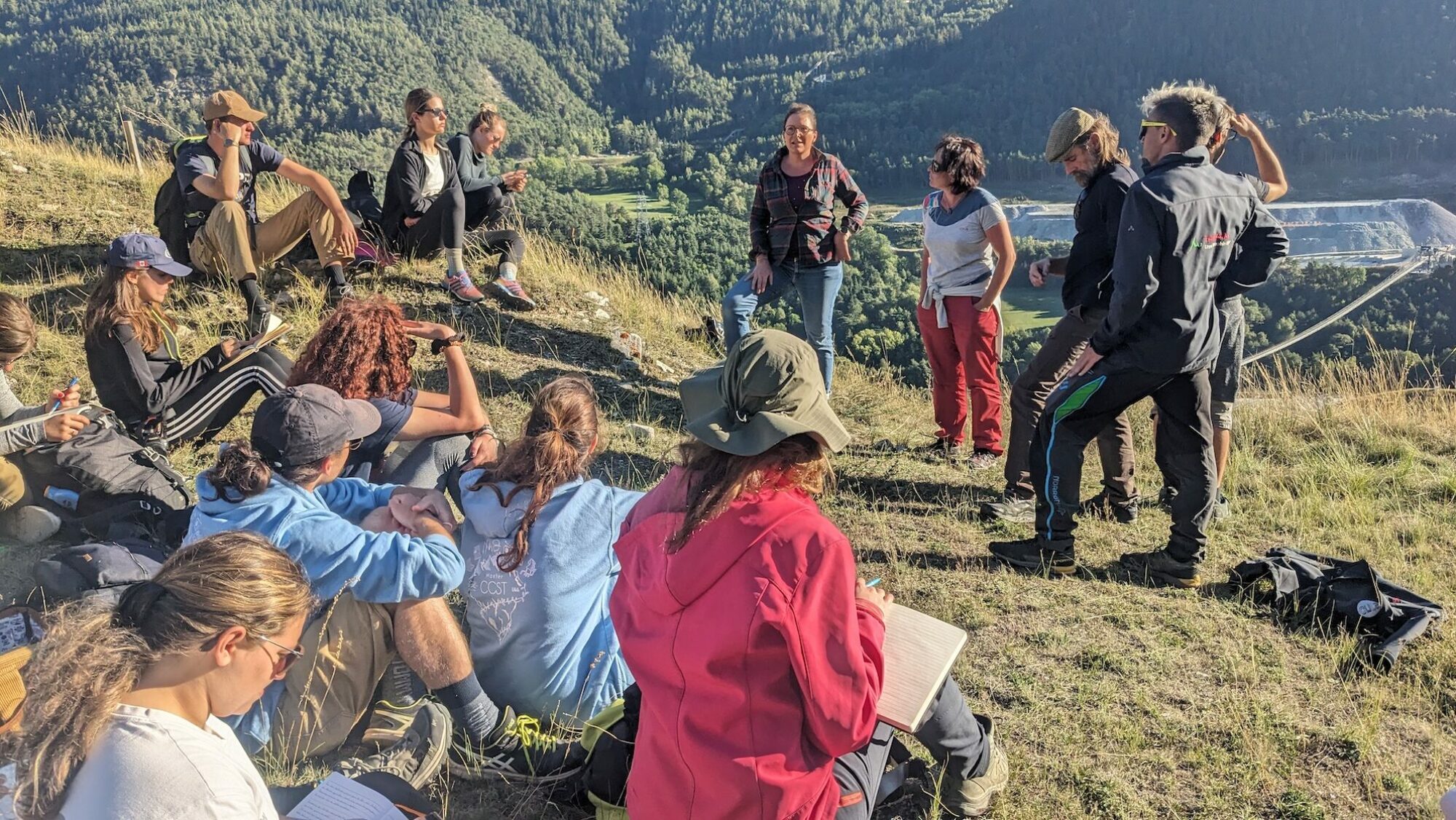Labex life
The 2024 Masters season: teaching from the field
 © Mikaël Chambru
© Mikaël Chambru
Each year, Labex ITTEM supports teaching workshops for Masters students in courses offered by Grenoble Alpes (UGA) and Savoie Mont Blanc (USMB) universities.
Over the 2023-2024 academic year, Labex ITTEM has supported eight training projects proposed by various Masters programs. What these projects have in common is that they offer immersion at the heart of concrete issues encountered by different mountain territories. They give students the opportunity to compare theoretical teachings with realities in the field.
It’s also an opportunity for them to understand how research is carried out in the human and social sciences, and how knowledge is built up through contact with mountain stakeholders. Reciprocally, these workshops also help to feed and enrich the work of our teacher-researchers:
From the start of the 2024 academic year, seven educational workshops will be offered to students from several partner courses, on a variety of themes:
- Carrying out a public communications project on environmental issues in the mid-mountain region of the Lac du Bourget in Savoie, in partnership with the Grand Lac agglomeration, the ONF and the Conservatoire du littoral (Master’s degree in Information, public communication and media – UGA)
- Carry out a carbon assessment and analysis of tourist behavior at the Croix de Bauzon ski resort, in partnership with the Syndicat mixte de la montagne ardéchoise (Master’s degree in Sports Management: Tourism and Mountains – UGA).
- Produce a scientific communication and animation based on the issues and controversies surrounding the marmot and its behavior in a context of climate change, in partnership with the Vanoise National Park, the Laboratory of Biometry and Evolutionary Biology (Lyon 1 University) and associations for environmental protection, farmers and hunters (Master’s degree in Scientific and Technical Communication and Culture – UGA).
- Immersion in the Col de Marcieu area of the Chartreuse to understand the context of tourism transition and the complexity of the issues involved, in partnership with the Belledonne-Chartreuse Intercommunal Tourist Office, the 7 Laux – Col de Marcieu – Collet d’Allevard ski lifts and the Espace Belledonne association (Master Stratégies Économiques du Sport & du Tourisme – UGA).
- Participate in the artistic creation of a walking itinerary between the Chauvet cave and the Lascaux cave, in partnership with the artistic association Agence Monik Lézart (Master Géographies et Montagnes – Géosphères – USMB).
- Dive into the historical evolution of Fort de Tamié in the Bauges, from its monastic past to its future as a tourist attraction, and grasp the complexity of the choices and adaptations to be made on the site, in partnership with the Fort de Tamié site (Master Applied History: society, environment, territories – UGA).
- Build a Living Lab on local mobility in the Trièves area, by organizing meetings and setting up systems to analyze needs and gather information, in partnership with Adrets and local authorities and associations (Master Ingénierie du Développement et de l’Aménagement des Territoires en Transition – UGA).
As in previous years, each project will conclude with a presentation by the students of the results of their workshops to the relevant stakeholders.
Based on their experience of supervising workshops run by Labex ITTEM, teacher-researchers Mikaël Chambru and Raphaël Lachello look back at the interest and pedagogical effectiveness of field placements for Master’s students. In their article Un détour par la montagne: le stage de terrain pour former les étudiants à la médiation et communication des sciences (A detour via the mountains: the field placement to train students in science mediation and communication), they show how this approach enables students to better grasp the socio-scientific dimensions of a controversy, and the complexity of the interplay of actors and arguments that drive it.
Find out more about the Formation projects supported by Labex ITTEM since 2020, and the Masters program partners.
